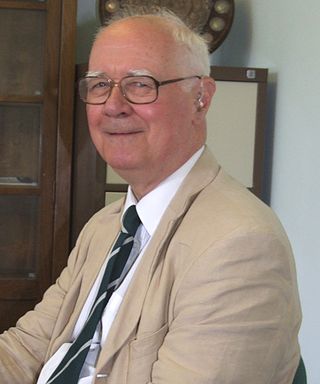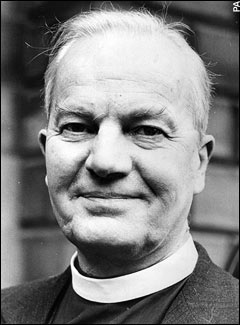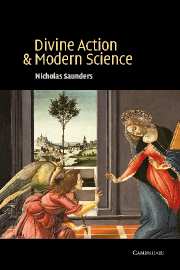Related Research Articles
Natural theology, once also termed physico-theology, is a type of theology that seeks to provide arguments for theological topics based on reason and the discoveries of science, the project of arguing for the existence of God on the basis of observed so-called natural facts, and through natural phenomena viewed as divine, or complexities of nature seen as evidence of a divine plan or Will of God, which includes nature itself.

The relationship between religion and science involves discussions that interconnect the study of the natural world, history, philosophy, and theology. Even though the ancient and medieval worlds did not have conceptions resembling the modern understandings of "science" or of "religion", certain elements of modern ideas on the subject recur throughout history. The pair-structured phrases "religion and science" and "science and religion" first emerged in the literature during the 19th century. This coincided with the refining of "science" and of "religion" as distinct concepts in the preceding few centuries—partly due to professionalization of the sciences, the Protestant Reformation, colonization, and globalization. Since then the relationship between science and religion has been characterized in terms of "conflict", "harmony", "complexity", and "mutual independence", among others.

William Paley was an English Anglican clergyman, Christian apologist, philosopher, and utilitarian. He is best known for his natural theology exposition of the teleological argument for the existence of God in his work Natural Theology or Evidences of the Existence and Attributes of the Deity, which made use of the watchmaker analogy.

Free will is the notional capacity or ability to choose between different possible courses of action unimpeded.

Determinism is the philosophical view that events are completely determined by previously existing causes. Deterministic theories throughout the history of philosophy have developed from diverse and sometimes overlapping motives and considerations. Like eternalism, determinism focuses on particular events rather than the future as a concept. The opposite of determinism is indeterminism, or the view that events are not deterministically caused but rather occur due to chance. Determinism is often contrasted with free will, although some philosophers claim that the two are compatible.

John Charlton Polkinghorne was an English theoretical physicist, theologian, and Anglican priest. A prominent and leading voice explaining the relationship between science and religion, he was professor of mathematical physics at the University of Cambridge from 1968 to 1979, when he resigned his chair to study for the priesthood, becoming an ordained Anglican priest in 1982. He served as the president of Queens' College, Cambridge, from 1988 until 1996.
Scientific laws or laws of science are statements, based on repeated experiments or observations, that describe or predict a range of natural phenomena. The term law has diverse usage in many cases across all fields of natural science. Laws are developed from data and can be further developed through mathematics; in all cases they are directly or indirectly based on empirical evidence. It is generally understood that they implicitly reflect, though they do not explicitly assert, causal relationships fundamental to reality, and are discovered rather than invented.

Theistic evolution is a view that God acts and creates through laws of nature. It posits that the concept of God is compatible with the findings of modern science, including evolution. Theistic evolution is not in itself a scientific theory, but includes a range of views about how science relates to religious beliefs and the extent to which God intervenes. It rejects the strict creationist doctrines of special creation, but can include beliefs such as creation of the human soul. Modern theistic evolution accepts the general scientific consensus on the age of the Earth, the age of the universe, the Big Bang, the origin of the Solar System, the origin of life, and evolution.
"God of the gaps" is a theological perspective in which gaps in scientific knowledge are taken to be evidence or proof of God's existence.

Alister Edgar McGrath is a Northern Irish theologian, Anglican priest, intellectual historian, scientist, Christian apologist, and public intellectual. He currently holds the Andreas Idreos Professorship in Science and Religion in the Faculty of Theology and Religion, and is a fellow of Harris Manchester College at the University of Oxford, and is Professor of Divinity at Gresham College. He was previously Professor of Theology, Ministry, and Education at King's College London and Head of the Centre for Theology, Religion and Culture, Professor of Historical Theology at the University of Oxford, and was principal of Wycliffe Hall, Oxford, until 2005.

Thomas Forsyth Torrance, commonly referred to as T. F. Torrance, was a Scottish Protestant theologian and minister. Torrance served for 27 years as professor of Christian dogmatics at New College, in the University of Edinburgh. He is best known for his pioneering work in the study of science and theology, but he is equally respected for his work in systematic theology. While he wrote many books and articles advancing his own study of theology, he also edited the translation of several hundred theological writings into English from other languages, including the English translation of the thirteen-volume, six-million-word Church Dogmatics of Swiss theologian Karl Barth, as well as John Calvin's New Testament Commentaries. He was a member of the famed Torrance family of theologians.
Mehdi Golshani is a contemporary Iranian theoretical physicist, academic, scholar, philosopher and distinguished professor at Sharif University of Technology. He is also member of Iranian Science and Culture Hall of Fame, senior fellow of Academy of Sciences of Iran and a founding fellow of the Institute for Studies in Theoretical Physics and Mathematics. He is a former member of the Supreme Council of the Cultural Revolution.

Positivism is a philosophical school that holds that all genuine knowledge is either true by definition or positive—meaning a posteriori facts derived by reason and logic from sensory experience. Other ways of knowing, such as intuition, introspection, or religious faith, are rejected or considered meaningless.

Muzaffar Iqbāl is a Pakistani-Canadian Islamic scholar and author.
Nancey Murphy is an American philosopher and theologian who is Professor of Christian Philosophy at Fuller Theological Seminary, Pasadena, CA. She received the B.A. from Creighton University in 1973, the Ph.D. from University of California, Berkeley in 1980, and the Th.D. from the Graduate Theological Union (theology) in 1987.

Issues in Science and Religion is a book by Ian Barbour. A biography provided by the John Templeton Foundation and published by PBS online states this book "has been credited with literally creating the contemporary field of science and religion."

Divine Action and Modern Science (2002) is a book written by Nicholas Saunders. It looks at Near Eastern biblical and modern theological approaches to the idea of divine action, covering such questions as how divine action occurs, what its effects are, the relationship between divine and finite causation and complementarity versus mutual exclusivity. Saunders concludes that God is active in the physical world, but not as described by traditional accounts.

William Grosvenor Pollard (1911–1989) was an American physicist and an Episcopal priest. He started his career as a professor of physics in 1936 at the University of Tennessee. In 1946 he championed the organization of the Oak Ridge Institute of Nuclear Studies (ORINS). He was its executive director until 1974. He was ordained as a priest in 1954. He authored and co-authored a significant amount of material in the areas of Christianity and Science and Religion found in books, book chapters, and journal articles. He was sometimes referred to as the "atomic deacon".
Karl Heim was a professor of dogmatics at Münster and Tübingen. He retired in 1939. His idea of God controlling quantum events that do and would seem otherwise random has been seen as the precursor to much of the current studies on divine action. His current influence upon religion and science theology has been compared in degree to that of the physicist and theologian Ian Barbour and of the scientist and theological organizer Ralph Wendell Burhoe. His doctrine on the transcendence of God has been thought to anticipate important points of later religious and science discussions, including the application of Thomas Kuhn's idea of a paradigm to religion and Thomas F. Torrance's theory of multileveled knowledge. Mention of Heim's physical and theological concept of extra-dimensional space can be found in a 2001 puzzle book by the popular mathematics writer Martin Gardner. His concept of space has also been discussed by Ian Barbour himself, who in a review of the book Christian Faith and Natural Science and in a mention of "its more technical sequel" The Transformation of the Scientific World-View, found it to be "an illuminating insight."
References
- ↑ Arthur Peacocke, The Journal of Theological Studies, October 2003 volume 54, issue 2, pages 869-873.
- ↑ "The Divine Action Project, 1988–2003", Wesley J. Wildman, Theology and Science , Vol. 2, No. 1, 2004
- ↑ Divine Action and Modern Science , Nicholas Saunders, 2002, Cambridge University Press, ISBN 0-521-52416-4
- ↑ "SEMINARIES SHARE SPACE, DOCTRINES ATOP 'HOLY HILL'", Sacramento Bee , December 31, 1997, P. A1
- ↑ "POPE GREETS SCIENTISTS, LAUDS STUDY". Catholic World News . June 28, 1996. Archived from the original on February 12, 2005. Retrieved September 2, 2017.